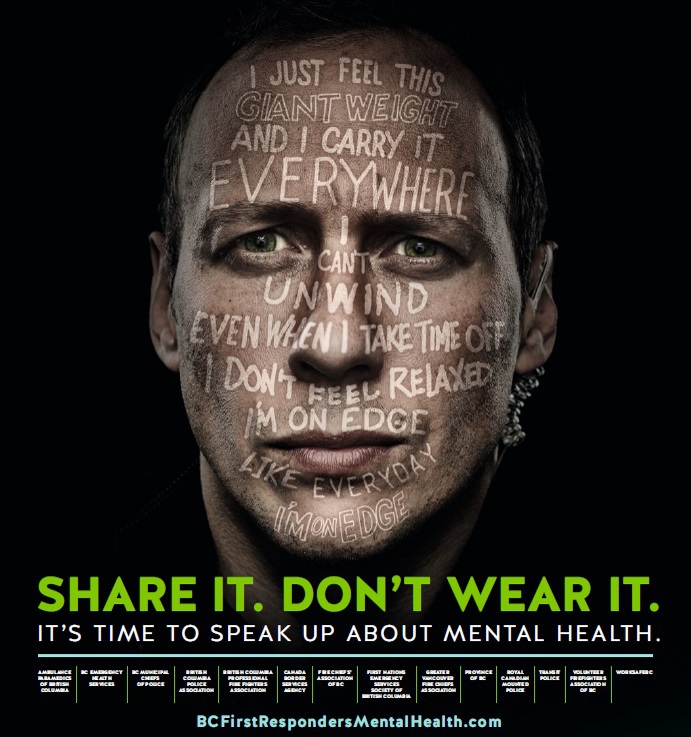
Features
Editor’s Commentary
Opinion
“Share It. Don’t Wear It.”
Firefighter Barry Dawson, paramedic Andreanne Leblanc, former RCMP officer Krista Carle: three first responders with different lived experiences and their own versions of “PTSD demons,” but who have one thing in common: within the past year, they decided to end their own lives.
August 1, 2018 By Renée Francoeur

Sadly, it isn’t the first time we’ve heard such news and many similar incidents never make headlines.
However, I want to focus on the increasing number of preventative resources I see popping up to handle first responder mental health challenges.
Let’s start with the “Share It. Don’t Wear It” awareness campaign, run by the B.C. First Responders Mental Health Committee, which is chaired by WorkSafeBC. After four months of research through an online discussion board and in-depth interviews with first responders from diverse backgrounds, the committee has launched a fantastic website full of tools for those who are looking for help and/or to help.
Ralph Kaisers, the VP of the B.C. Police Association, and Doug Semple, an inspector for the Metro Vancouver Transit Police, recently sent me an article with more details about “Share It. Don’t Wear It” and I have to admit, the corresponding posters for the project really struck me. They can be downloaded right from the site and were designed with a blank space at the bottom to highlight resources, meetings, events and workshops “so that the emphasis is on action.”
“The aim is to associate the poster with a specific, time-limited event, after which it is taken down, so the image doesn’t become background noise,” Kaisers and Semple wrote.
The posters are powerful shots of faces with quotes impressed overtop that were collected during the interviews — it’s an important visual of vulnerability that really drives home the “anti-stigma” message.
“Respondents spoke powerfully about the need for a cultural change — a shift that must happen at the leadership level,” Kaisers and Semple continued. “We hope the site, which houses self-assessment and self-care tools, an event calendar and resources for those in crisis, will spark larger conversations about mental health.”
Piggybacking on this campaign, the committee will be holding the first-ever B.C. First Responders’ Mental Health Conference on Jan. 31-Feb. 1, 2019, so mark your calendars.
Additionally, support groups for Ottawa police, paramedics and firefighters held their first suicide prevention workshop for people connected with all three emergency services this May.
In June, a charitable group called the Society of Atlantic Heroes celebrated its open house and announced plans to build a stunning support centre near Halifax to assist first responders and veterans suffering from PTSD. The hunt for securing about $20 million in funding has begun and the society says it hopes to have part of the facility open in five years.
So things are happening all around. Maybe it’s not as fast as some of us would like — and it definitely wasn’t as fast as some of us needed — but it’s never too late to speak up and seek help. And the more we keep openly conversing about these kinds of resources in our homes, schools and in the workplace, the less the mental health stigma sticks.
For more on “Share It. Don’t Wear It” campaign, read Kaisers and Semple’s article here.
Print this page